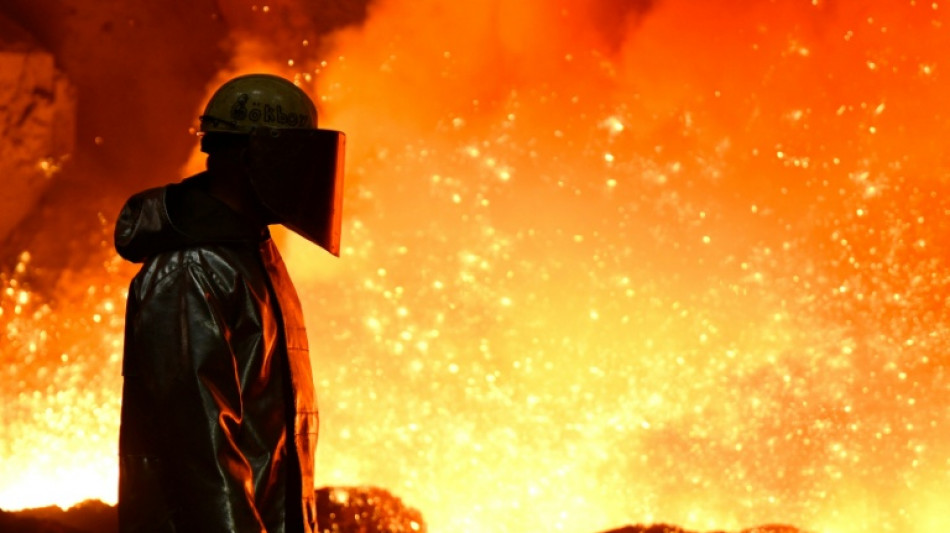
-
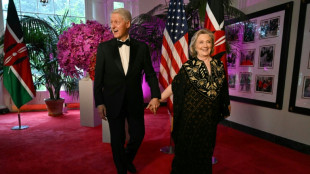 US Republicans begin push to hold Clintons in contempt over Epstein
US Republicans begin push to hold Clintons in contempt over Epstein
-
Trump says agreed 'framework' for US deal over Greenland
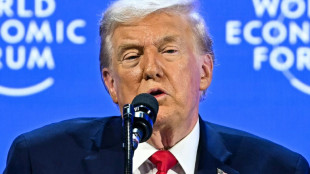
-
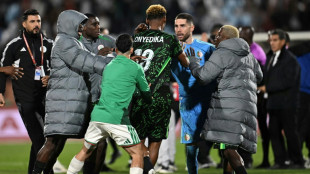 Algeria's Zidane and Belghali banned over Nigeria AFCON scuffle
Algeria's Zidane and Belghali banned over Nigeria AFCON scuffle
-
Iran says 3,117 killed during protests, activists fear 'far higher' toll
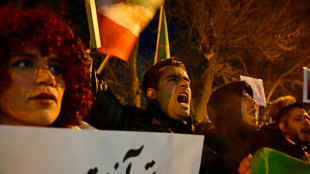
-
 Atletico frustrated in Champions League draw at Galatasaray
Atletico frustrated in Champions League draw at Galatasaray
-
Israel says struck Syria-Lebanon border crossings used by Hezbollah
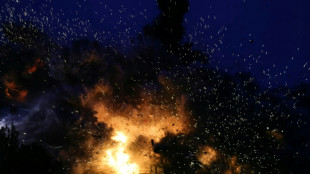
-
 Snapchat settles to avoid social media addiction trial
Snapchat settles to avoid social media addiction trial
-
'Extreme cold': Winter storm forecast to slam huge expanse of US

-
 Jonathan Anderson reimagines aristocrats in second Dior Homme collection
Jonathan Anderson reimagines aristocrats in second Dior Homme collection
-
Former England rugby captain George to retire in 2027

-
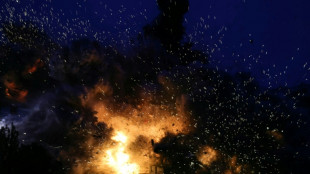 Israel launches wave of fresh strikes on Lebanon
Israel launches wave of fresh strikes on Lebanon
-
Ubisoft unveils details of big restructuring bet
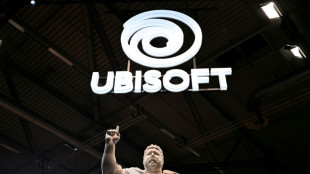
-
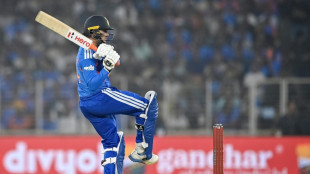 Abhishek fireworks help India beat New Zealand in T20 opener
Abhishek fireworks help India beat New Zealand in T20 opener
-
Huge lines, laughs and gasps as Trump lectures Davos elite
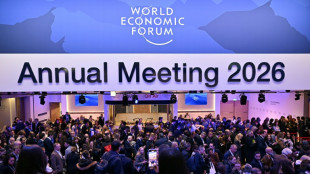
-
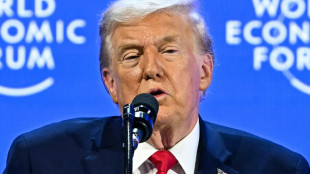 Trump rules out 'force' against Greenland but demands talks
Trump rules out 'force' against Greenland but demands talks
-
Stocks steadier as Trump rules out force to take Greenland
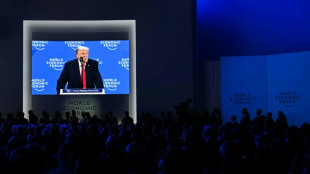
-
 World's oldest cave art discovered in Indonesia
World's oldest cave art discovered in Indonesia
-
US hip-hop label Def Jam launches China division in Chengdu
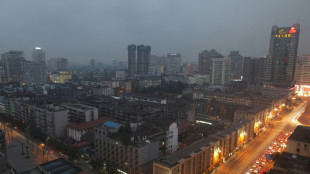
-
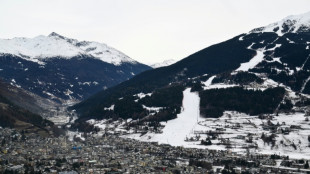 Dispersed Winter Olympics sites 'have added complexity': Coventry
Dispersed Winter Olympics sites 'have added complexity': Coventry
-
Man City players to refund fans after Bodo/Glimt debacle

-
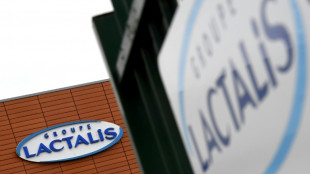 France's Lactalis recalls baby formula over toxin
France's Lactalis recalls baby formula over toxin
-
Pakistan rescuers scour blaze site for dozens missing
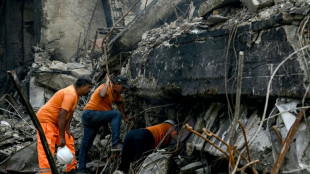
-
 Keenan return to Irish squad boosts Farrell ahead of 6 Nations
Keenan return to Irish squad boosts Farrell ahead of 6 Nations
-
US Treasury chief accuses Fed chair of 'politicising' central bank
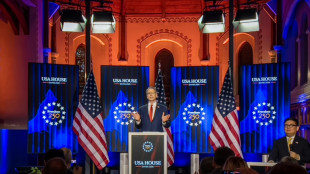
-
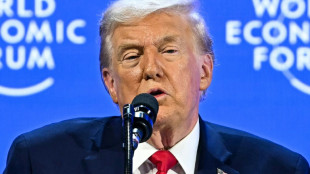 Trump rules out force against Greenland but demands 'immediate' talks
Trump rules out force against Greenland but demands 'immediate' talks
-
Israeli strike kills three Gaza journalists including AFP freelancer

-
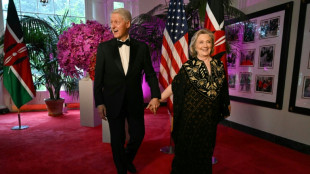 US Congress targets Clintons in Epstein contempt fight
US Congress targets Clintons in Epstein contempt fight
-
Huge lines, laughs and gasps as Trump addresses Davos elites
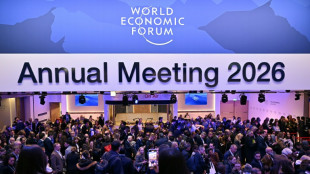
-
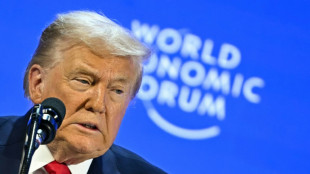 Trump at Davos demands 'immediate' Greenland talks but rules out force
Trump at Davos demands 'immediate' Greenland talks but rules out force
-
Australia pauses for victims of Bondi Beach shooting

-
 Prince Harry says tabloid coverage felt like 'full blown stalking'
Prince Harry says tabloid coverage felt like 'full blown stalking'
-
Galthie drops experienced trio for France's Six Nations opener

-
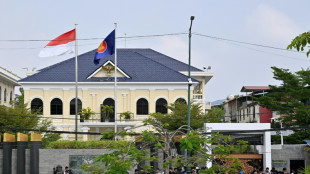 Over 1,400 Indonesians leave Cambodian scam groups in five days: embassy
Over 1,400 Indonesians leave Cambodian scam groups in five days: embassy
-
ICC rejects Bangladesh's plea to play T20 World Cup matches outside India

-
 Prince Harry says UK tabloid court battle in 'public's interest'
Prince Harry says UK tabloid court battle in 'public's interest'
-
Trump lands in Davos to push Greenland claims
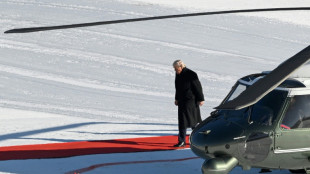
-
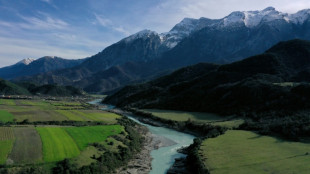 Balkan wild rivers in steady decline: study
Balkan wild rivers in steady decline: study
-
Injured Capuozzo misses out on Italy Six Nations squad

-
 Mourners pay last respects to Italian icon Valentino
Mourners pay last respects to Italian icon Valentino
-
EU parliament refers Mercosur trade deal to bloc's top court
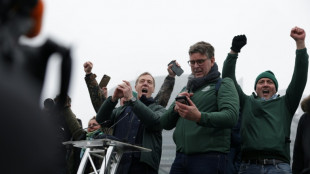
-
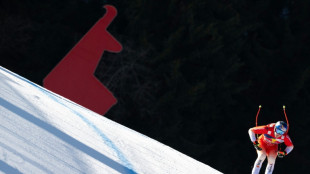 Odermatt seeks first Kitzbuehel victory with eye on Olympics
Odermatt seeks first Kitzbuehel victory with eye on Olympics
-
Italy's Brignone to be rested for Spindleruv Mlyn giant slalom

-
 Alcaraz spearheads big names into Australian Open third round
Alcaraz spearheads big names into Australian Open third round
-
European stocks dip ahead of Trump's Davos speech

-
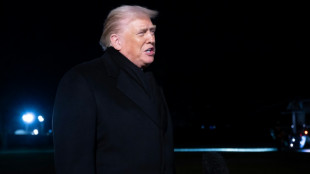 Trump flies into Davos maelstrom over Greenland
Trump flies into Davos maelstrom over Greenland
-
EU won't ask Big Tech to pay for telecoms overhaul

-
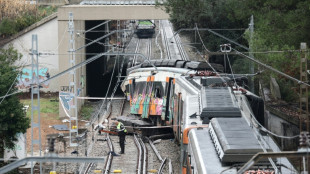 Railway safety questioned as Spain reels from twin train disasters
Railway safety questioned as Spain reels from twin train disasters
-
Marcell Jacobs back with coach who led him to Olympic gold
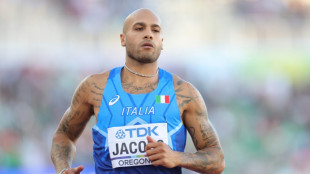
-
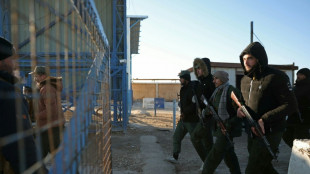 Syria army enters Al-Hol camp holding relatives of jihadists: AFP
Syria army enters Al-Hol camp holding relatives of jihadists: AFP
-
Brook apologises, admits nightclub fracas 'not the right thing to do'


German steel industry girds for uncertain future
Hammered by surging energy costs and a flood of cut-price Chinese imports, Germany's steel industry has been mired in deep crisis for several years.
Chancellor Friedrich Merz on Thursday convenes talks with key industry players in Berlin in an effort to help the sector. Here are some questions and answers on the subject:
Why is steel important for Germany?
German's strength as a leading industrial nation is strongly linked to steel production, which rose in tandem with the construction of the railways, military build-ups during two world wars, and the economic revival of the 1950s.
The country remains Europe's top steel producer, and the seventh largest in the world, according to the World Steel Association.
Steel is widely used in many sectors in Europe's biggest economy, from construction to automotive and mechanical engineering, and is an essential component of exports.
The sector directly employs only around 80,000 people, according to German industry federation WV Stahl, with many working in the traditional industrial heartland of the Ruhr.
But steel-intensive sectors employ around four million people, accounting for two out of three industrial jobs, according to the federation.
Why is the sector in crisis?
China, the world's top producer, has for years been flooding world markets with large quantities of steel at knock-down prices, undercutting German and European producers.
Problems worsened for the power-hungry sector when Russia's 2022 invasion of Ukraine sent energy costs surging. While they have since come down, they remain well above levels seen before the war.
In recent times, steel production in Germany has languished at 10 to 15 percent below 2022 levels.
A growing number of steel plants in the country are being mothballed: a quarter were temporarily shuttered in 2024, according to the Agora Industrie think tank.
The sector's traditional giants meanwhile are sliding into crisis. Thyssenkrupp plans to cut around a third of its steel division's workforce and slash production by around 30 percent by 2030.
What are the solutions?
The talks convened by Merz will bring together the country's top producers as well as leaders from states where the industry is a major employer, in a bid to "increase competitiveness and the future prospects" of the sector, a government spokesman said.
The meeting is a key step in "paving the way" to come up with measures to help the industry, he said.
One key aim is to clarify Berlin's position on the European Commission's radical plans to protect the continent's steel industry from cheap foreign imports.
In early October, it proposed hiking levies on steel imports to 50 percent and slashing the volume allowed in before tariffs apply by 47 percent.
It mirrors a strategy embraced by US President Donald Trump, who has imposed 50-percent tariffs to keep out cheap metals from China.
Germany's leading industrial union IG Metall considers the EU's proposals "fair", a spokesperson told AFP, urging the government to "clearly defend" them.
Berlin is also planning to begin a scheme in January to subsidise power costs for industry, which Economy Minister Katherina Reiche said will be "key to the competitiveness of steel".
A green future?
The talks will address the issue of decarbonisation, with the sector betting on the production of "green" steel -- produced using hydrogen derived from renewable energies -- to meet climate goals.
But the shift is challenging as it requires huge investments from steel companies with already strained finances.
Thyssenkrupp's plans to produce green steel at its historic site in the western city of Duisburg were originally scheduled for 2027 but they are now hanging in the balance.
Indian group Jindal, which recently made a takeover bid for Thyssenkrupp's steel unit, has pledged to advance the group's green ambitions if it takes control.
Merz has in the past faced criticism for questioning whether green steel can be produced competitively on a large scale.
Agora Industrie director Julia Metz urged the government to "send clear political signals" and "create investment security" for the shift to green steel.
P.Vogel--VB

